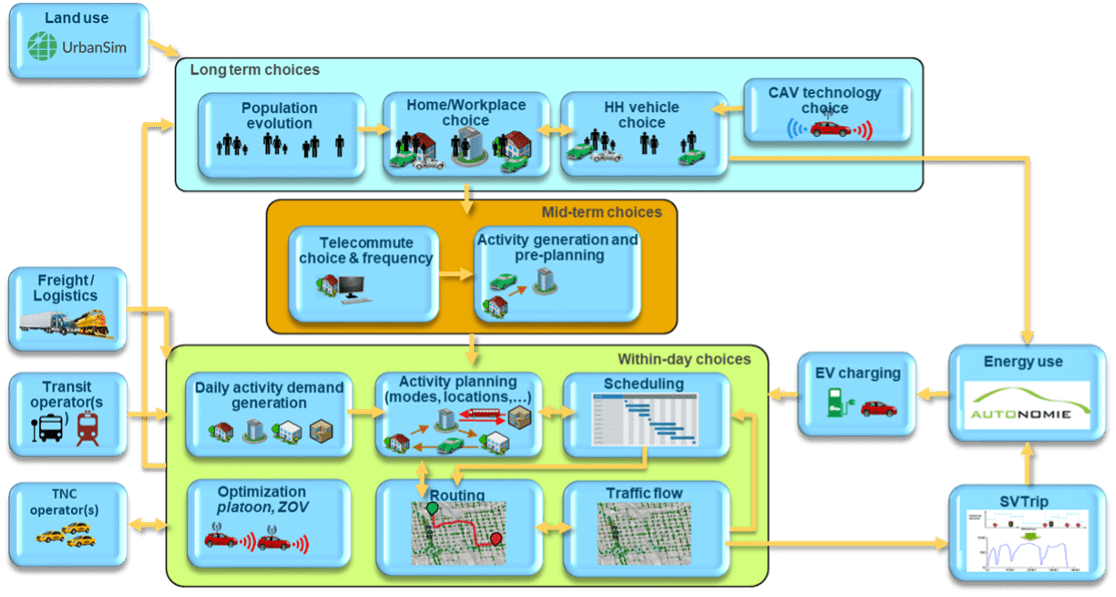POLARIS
Experience next-generation transportation systems simulation with POLARIS.
Developed by the Argonne National Laboratory Vehicle & Systems Mobility Group (VMS), POLARIS was originally created for the U.S. Department of Transportation (DOT) Federal Highway Administration (FHWA) to analyze transportation system management strategies involving emerging vehicle and information technologies. It has evolved into a high-performance, computationally efficient tool that implements advanced travel and freight demand modeling, dynamic traffic assignment, and transportation simulation into an integrated modeling platform. POLARIS features an integrated network-demand model, in which all the aspects of travel decisions can be modeled simultaneously, including:
- Activity generation;
- Activity planning (e.g., departure time, destination choice, mode-choice, etc.);
- Multi-modal route choice;
- Activity planning and rescheduling;
- Freight and logistics planning; and
- Fleet and transit service operational controls.
POLARIS is also sensitive to traffic management strategies, such as lane management, information provision, variable speed control, and intersection control.
 Integrated Network, Demand, Freight, Infrastructure and Energy Model
Integrated Network, Demand, Freight, Infrastructure and Energy Model
POLARIS highlights include:
- Agent-based modeling framework;
- Implementation for multiple metro areas;
- High-performance C++ codebase;
- Integration with traffic, demand, freight, and control;
- Entire metro area simulations;
- Deployment on high performance computing (HPC);
- Integration with external optimization solvers (CPLEX, Gurobi, GLPK); and
- Four- to six-hour run time for up to 10 million agents.
Application examples include analysis of:
- Connected and automated vehicles (CAVs);
- Mobility as a Service (MaaS);
- Transit systems;
- Freight systems;
- Charging infrastructure; and
- System level optimization.
Announcements
Related Expertise
Related Research Highlights
Related Tools
Contact